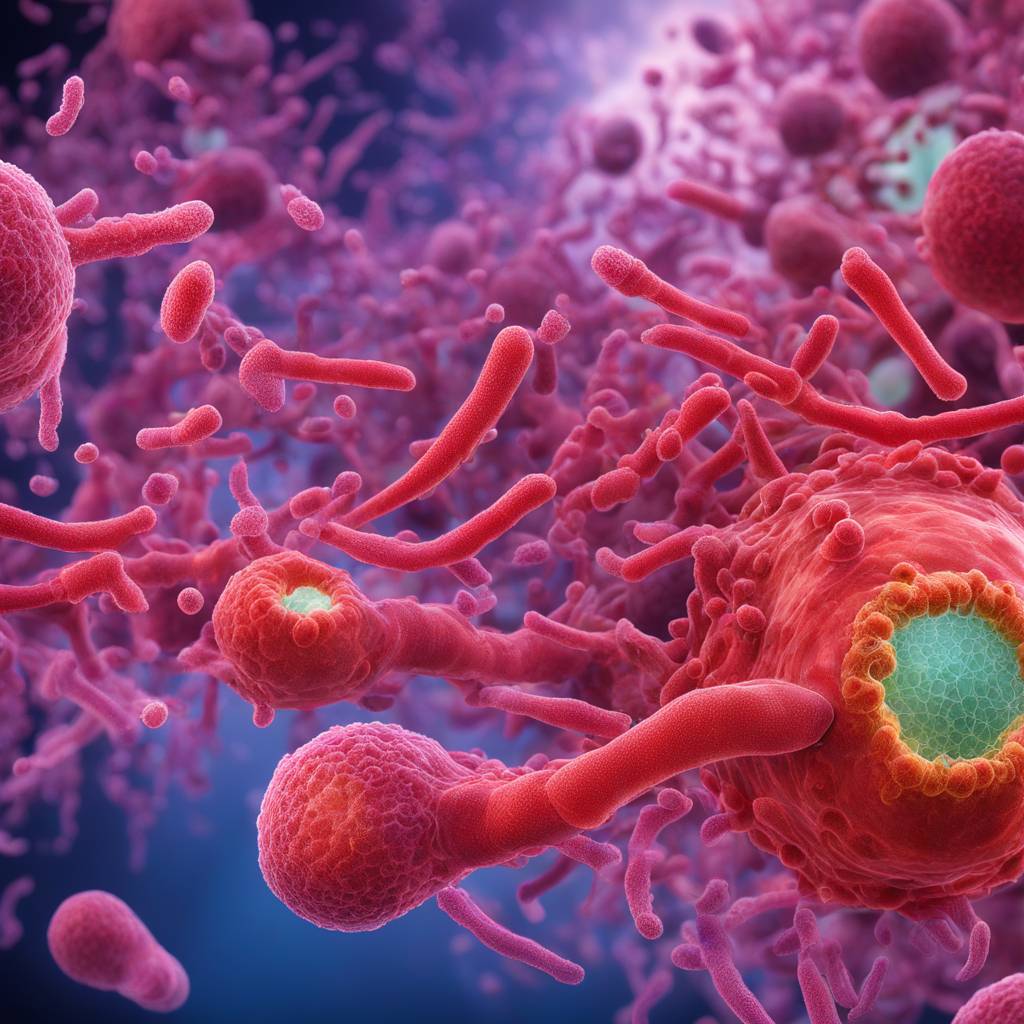A recent study published in the journal Nature discovered that microbes typically found in the mouth were present in about half of colorectal tumors examined, as well as in stool samples of individuals with colorectal cancer. Researchers found that these microbes traveled from the mouth to the colon, surviving exposure to stomach acid. This discovery opens up possibilities for new treatment options for colorectal cancer patients. The study, conducted at the Fred Hutchinson Cancer Center in Seattle, identified a specific microbe commonly found in the mouth in many cases of colorectal cancer. The researchers hope that this finding could lead to advancements in treatment and early screening methods.
The researchers examined 200 cases of colorectal cancer and found that approximately half of the tumors contained the identified microbe. Additionally, the microbe was present in stool samples from individuals with colorectal cancer, suggesting a potential role in cancer progression and poorer outcomes. Further analysis revealed that there were two distinct types of the microbe, with only one group contributing to tumor growth. Understanding the specific subtype responsible for tumor growth could lead to targeted therapies and screening methods for individuals at higher risk for aggressive colorectal cancer.
Dr. Susan Bullman, a cancer microbiome researcher at the Fred Hutchinson Cancer Center and co-corresponding study author, noted that patients with colorectal tumors containing the identified microbe tend to have poorer survival outcomes compared to those without the microbe. The research indicates that targeting this subgroup within the microbiota could improve treatment outcomes for individuals with colorectal cancer. By utilizing modified versions of the bacterium delivered directly into tumors, new treatment options could be developed to combat the growth of colorectal cancer cells. These findings highlight the potential for personalized medicine approaches in managing colorectal cancer.
Experts, such as Dr. Anton Bilchik, a surgical oncologist and chief of medicine at the Gastrointestinal and Hepatobiliary Program at Providence Saint John’s Cancer Institute in California, emphasize the importance of understanding the role of microbiomes in disease development. Bilchik explains that research into the microbiome’s impact on colon cancer is in its early stages, but findings could help identify individuals at risk for the disease. The study’s results suggest a potential link between disruptions in the colon microbiome, such as from overuse of antibiotics, and an increased risk of colon cancer. Further research is needed to explore the implications of these microbial findings on disease progression and personalized treatments.
Colorectal cancer, also known as colon cancer, originates when cells in the large intestine or rectum grow uncontrollably. The cancer typically starts as polyps, growths inside the colon that can become malignant. Early screening, such as colonoscopies, is crucial for detecting colorectal cancer in its early stages when treatment is most effective. Symptoms of colorectal cancer may include changes in bowel habits, rectal bleeding, abdominal pain, weakness, and unintentional weight loss. Individuals with a family history of colorectal cancer, polyps, inflammatory bowel disease, or certain lifestyle factors such as smoking and alcohol consumption, are at a higher risk of developing the disease.
Various treatments for colorectal cancer exist, including local procedures, systemic therapies, and a combination of both. In addition, complementary and alternative therapies, such as vitamins, herbs, or acupuncture, can complement traditional treatments to manage symptoms and improve quality of life. It is essential to consult with a healthcare provider before incorporating complementary treatments to ensure they are safe and do not interfere with standard medical care. Early detection through screening and advancements in personalized treatment options can help enhance outcomes for individuals diagnosed with colorectal cancer, emphasizing the importance of ongoing research and innovation in cancer care.



